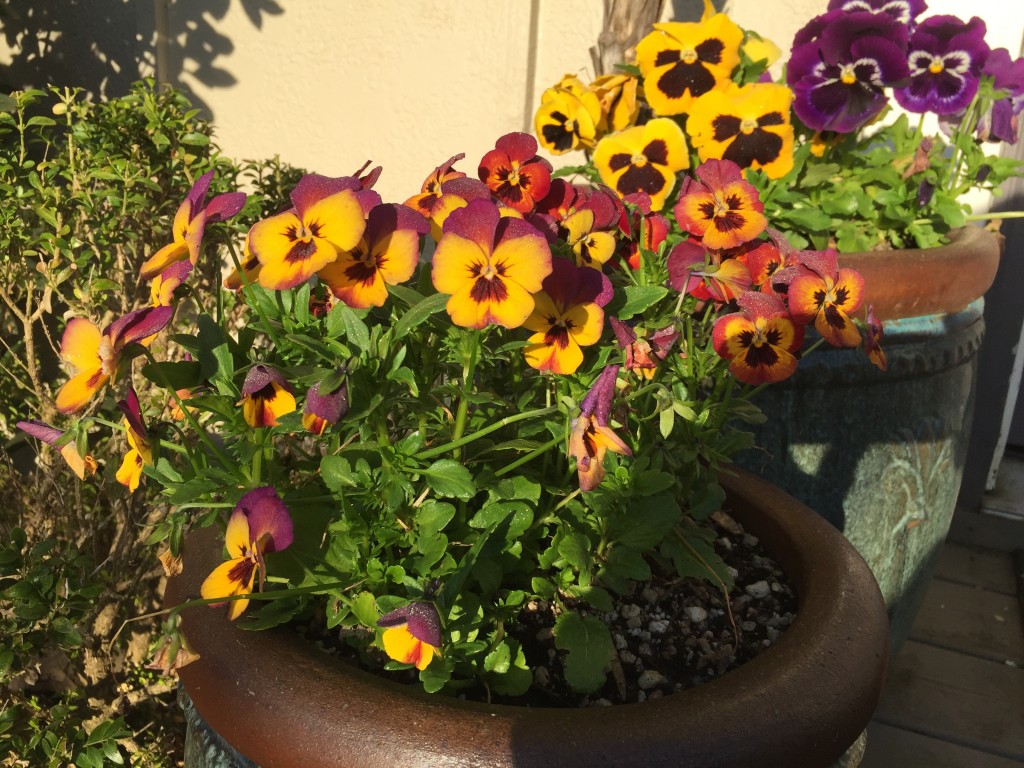Like David, I write psalms from time to time. I have a small book full of them. Most never see the light of day.
There is a psalm in the Bible for every emotional high and low. That’s one of the beauties of the psalms. Most end in an upbeat praise to Yah no matter how low the starting point. Mine are no different.
I just now wrote a new psalm and I’m being led to share it with you. I labor over most of my psalms for days or weeks. This one was birthed in an hour. Maybe someone can relate, and it will bless someone. Then again maybe not…
Psalm X—A Psalm of Natan Lawrence
I’ve given it all and have nothing left except what You give me to give.
I’m running on empty, so where is Your heavenly filling station?
I am nothing except what You make of me.
I have nowhere to go except where You lead me.
I have nothing to say except what You put in my mouth.
For half a century Your word has been my breakfast, yet I know nothing.
You’re a vast ocean and I’m a single drop.
I’ve done it all:
Shepherded Your sheep who’d rather go astray,
Helped to gather the lost tribes here and across the nation—
But the rebels refused and divided.
Made disciples as You commanded of sheep who only bit and stomped.
Preached the gospel a thousand times till my voice was hoarse…
To those who stopped their ears and spat.
Poured out my soul to hearts of stone till my heart bled.
Prepared sumptuous meals to those who refused to eat till I was starving.
Visited You while You were in prison,
Fed You when you were starving,
And clothed You when You were naked.
Written volumes unlocking the delectable mysteries of Your word,
But they refused to eat—
Preferring instead their play toys!
Begged, pleaded, threatened, encouraged Your people to seek You,
Till I have no more voice, am empty of tears, weary of strength and faint of heart.
Led them to green pastures and to still waters,
But the manna from heaven was to them as dirt.
Blazed new paths in the forest and no one followed.
Made a tabernacle camp in the wilderness, and Your children merely complained.
Raised high the banner of Yeshua, and they went back to sleep.
Worshipped, danced and shouted like David,
While they sat unmoved, glued to their chairs.
Raised my voice in prayer crying out to the Most High,
While the sound of snoring rose from the back row.
Unfulfilled dreams have come and are now long past.
My dreams or Yours?
I cannot tell.
Are my failed visions merely launch pads to something yet to come—
My Master’s plan yet unrevealed?
Were these ventures pointless cisterns of my own hewing,
Merely tests of my character, refinements of my soul,
Preparing me for the real mission over the next hill?
All that I’ve done, learned, studied, taught, preached, written—
And still no revival!
Is it all vanity of vanities?
Has my focus been misplaced on doing instead of being?
So what now?
Like Samuel and Jeremiah, You’ve called me from my youth.
Like John, I stand alone— a voice in the wilderness.
Like Joseph, I’m held captive in the prison of this world.
Like David and Jeremiah, I await Your deliverance from the miry pit weeping.
Like Elijah, in the cave’s mouth,
I stand alone discouraged awaiting Your voice.
Like Nahum, I’ve written down the vision and stand watch waiting.
Like Moses, I can’t go forward without Your Presence.
Though the land is dry, barren, desolate and destroyed,
Like Habakkuk, I will sing my hymn of faith and rejoice in Elohim my strength!
Like Isaiah, I await Your waters in the wilderness,
When, behold, You will do a new thing,
When You will rend the heavens and come down,
And the mountains will shake at Your presence,
And Your fire will consume, refine, ignite and defend Your defamed Name.
Like Isaiah, my lips are unclean,
So cleanse me…
Here I am!
Use me.
Until then, like Amos, I’ll go back to picking my figs,
And tending my flock,
Until You send me forth.
Like David, I will look to the hills from whence comes my help,
Lifting my eyes skyward as a servant looks up to his master,
As a dog to its owner.
Like Martha, I will sit myself quietly at Yeshua’s feet,
Quiet my anxious soul
Like a weaned child with his mother.
And I will wait patiently on Yehovah Elohim.
Maybe I’m finally coming to the end of myself…
And you can really use me now.
Sometimes it feels good to get things off your chest and out into the open!



